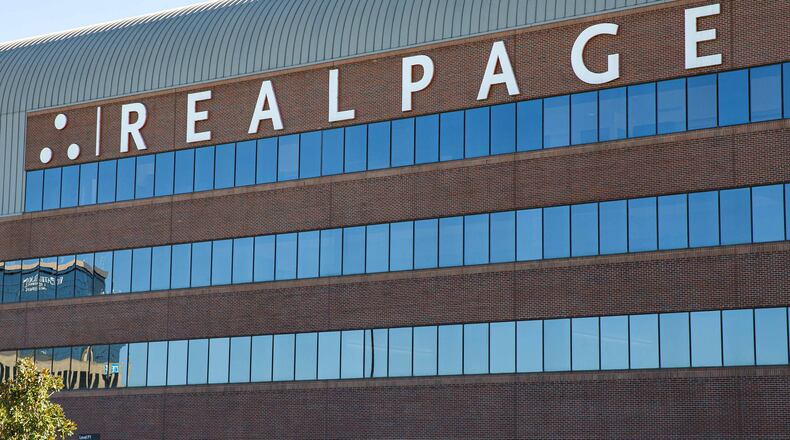Corporate landlords using RealPage’s tech recorded sharp increases in profits as tenants wrestled with high rents, according to a new report released by a D.C.-based think tank.
The report by progressive watchdog Accountable.US on six multifamily apartment companies, including three operating in Atlanta, found they enjoyed $300 million in combined profits during the first financial quarter of 2024. The group attributes the rising profits, at least in part, to rent increases.
Accountable.US looked at the profits of Germantown, Tennessee based Mid-America Apartments; AvalonBay Communities of Arlington County, Virginia; Chicago-based Equity Residential; Essex Property Trust, which has headquarters in San Mateo, California; UDR of Highlands Ranch, Colorado; and Camden Property Trust, based in Houston Texas.
Liz Zelnick, an executive at the group, said the nonprofit analyzed the six largest publicly traded apartment companies’ financial reports and listened in on earnings calls. She said between them, the companies own close to 350,000 units.
“There are so many people who are struggling to pay their rent right now. We’re seeing that corporate landlords are buying up more and more properties across the country and they’re maximizing profits, they’re raising rents, and now they’re utilizing RealPage, which is essentially price fixing,” she said.
National Multifamily Housing Council, a public policy group representing the multifamily housing industry, disputed the group’s conclusions. Its president Sharon Wilson Géno noted the multifamily rental industry was grappling with rising insurance rates, construction costs, and local and state taxes, in addition to other inflationary pressures.
“What’s really driving rental prices is the shortage of housing in the United States,” Géno said. “Anytime you have a shortage, pricing is going to go up.”
The June 12 report follows the FBI’s recent raid on the Atlanta headquarters of property management company Cortland Management. Additionally, five of the companies in the new report were named as defendants in the closely-watched antitrust case against RealPage in federal court in Nashville, Tennessee. The lawsuit claims RealPage and the companies conspired to artificially inflate the price of rent by relying on the price-setting software.
In addition to the heightened scrutiny corporate landlords are facing because of the criminal probe, state prosecutors have taken action against the tech company and corporate landlords using the software. They face antitrust claims filed by attorneys general in D.C. and Arizona.
RealPage did not comment on the report’s findings. But the company’s attorney, Stephen Weissman, told The Atlanta Journal-Constitution this month that the litigation is “politically opportunistic.”
Mid-America Apartments, Equity Residential and Camden Property Trust all operate apartments in Atlanta. The companies did not respond to requests for comment.
Mid-America Apartments, which saw its net income increase 6% to $147.6 million, has close to 12,000 units across metro Atlanta, according to the group. Camden Property Trust had a net income increase of 97% to $85.8 million as it spent $50 million on stock buybacks, the group said, and has more than 4,000 units in the area. Equity Residential’s net income climbed 39% to $305 million and it has about 2,000 units in metro Atlanta, officials with the think tank said.
According to a March rental report by real estate listings company Realtor.com, there was a 3.7% decline in rents in the Atlanta area compared to March 2023.
But renters can still expect to pay a median rent of more than $2,100, according to Zillow, which has found that from 2019 to 2023 rent increases outpaced wage growth.
The Harvard Joint Center for Housing Studies released a report earlier this year suggesting almost half of all renters in the U.S. are paying more than 30% of their income toward rent and utilities.
Those in the single-family and multifamily rental industry say that too much weight is put on the influence of corporate landlords, with the housing shortage the deciding factor on rent increases. By some estimates, between four million and seven million homes are needed to meet demand for housing, according to The Pew Charitable Trusts.
About the Author
Keep Reading
The Latest
Featured




